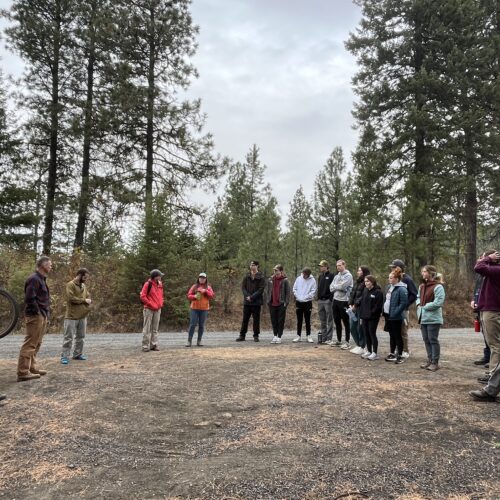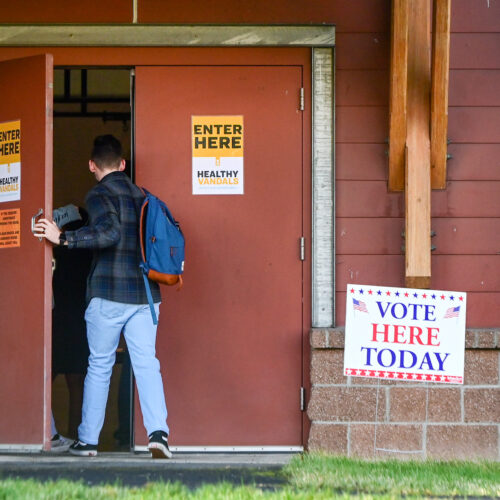
WA Supreme Court rules state’s Voting Rights Act is constitutional
Listen
(Runtime 1:48)
Read
The Washington Supreme Court denied the appeal challenging the constitutionality of the Washington State Voting Rights Act on the Latino voting rights lawsuit against Franklin County Thursday. The court’s opinion came only a month after judges heard oral arguments from the parties involved.
The appeal filed by an intervenor in the case, James Gimenez, argued that the Washington State Voting Rights Act only protects some racial groups and violates the 14th Amendment and the equal protection guarantees of the U.S. Constitution.
But, the court found the arguments were based on an incorrect interpretation of the definition of a protected class of the Washington State Voting Rights Act.
Edwardo Morfin is one of the attorneys of the Latino voters and the League of United Latin American Citizens, the original plaintiffs in the case against Franklin County. Both parties settled an agreement last year to create single-member district systems for elections.
Morfin says he is satisfied with the decision.
“It reaffirmed that the Washington State Voting Rights Act is constitutional, and it’s here to remedy some wrongs,” said Morfin.
The court opinion stated the plain language of Washington’s Voting Rights Act, “protects all Washington voters from discrimination based on race, color, and language minority group.”
It also noted the plaintiffs have standing and the Washington State Voting Rights Act is valid and constitutional on its face.
Washington’s Supreme Court affirmed the trial court, awarding attorney fees and costs to the plaintiffs against Gimenez, and remanding calculation of fees incurred at the trial court.
The attorney for Gimenez, Joel Ard, argued during oral arguments last month that to be able to sue, minority groups must make up less than half the local population.
“Here, Hispanics are a majority in Franklin County,” said Ard at that time.
Ard also said the term “race” is not clearly defined in federal law, the official judicial interpretation of the Federal Voting Rights Act and the Washington Voting Rights Act.
“It seems to be that when the legislature uses race, just as when the federal legislature, the Congress, uses race, and when it’s used in judicial constructions of Section Two, everyone assumes that we all know what we’re talking about,” said Ard.
The attorney for Gimenez, Joel Ard, did not respond to requests for comment prior to the publication of this story.
















